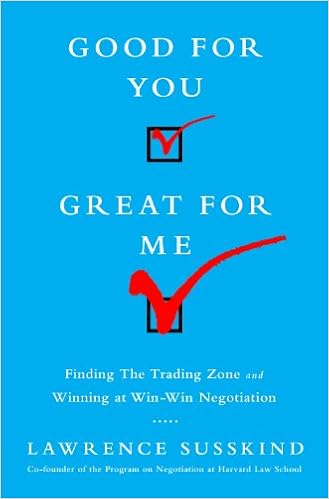One response I often get to the idea of a taking a consensus building approach to governance is that it won't work because people with conflicting values and interests can't possibly reach agreement through informal conversation. The only way to settle their differences (peacefully), or so the argument goes, is to let the majority rule. While I don't agree, what possible reason, then, could there be for communities-of-faith (i.e. groups associated with particular temples, parishes, or churches) to operate by majority voting? They are, by definition, groups that share common values and interests.
Monday, February 9, 2009
Governing Communities of Faith
I am part of one community-of-faith that used to spend far too much time bickering about budget allocations, hiring, and management of our religious programs and building. While religious events were inspirational and all-embracing, our annual meetings at which budgets had to be set and general policies made, were painful. In fact, people stopped coming. The same people who couldn't be more considerate of their co-religionists at Sabbath services, behaved like the most cynical and power-hungry state legislators or municipal town meeting members when it was time for annual meetings. In my Congregation, several hundred families meet for the better part of the afternoon to make policy, hiring and budget decisions. For many years, they almost always got tangled up in the logistics of parliamentary procedure -- with its seconding of motions, formal amendments, votes to move the question, etc. Along with a small group that couldn't stand it any more, I proposed that we adopt a consensus building approach (CBA) to governing ourselves. We re-wrote our by-laws (which, by state and federal law, we must have) to substitute the key elements of CBA as our operating manual. We actually used Robert's Rules to vote out Robert's Rules (at least for a three year trial period). Annual meetings are now run very differently. Pre-meetings are used to ensure wide-spread involvement in generating proposals and draft budgets. A facilitator guides the annual meeting discussion. Instead of formal debate, we have collaborative problem-solving. We search for ways of making sure that we meet almost everyone's interests. We never settle for a bare majority when with a little more work we can usually reach an informed consensus. While we are not quite as demanding as Quaker meeting (which will remain in conversation until everyone has had their say and everyone is in agreement), members now come away feeling proud about how we govern ourselves.
For more on CBA see Breaking Robert's Rules: The New Way to Run Your Meeting, Build Consensus and Get Results (Oxford, 2006) with modified versions in Chinese, Japanese, Russian, Portuguese, Dutch (forthcoming) and French (forthcoming). Or, see the web site www.breakingrobertsrules.com.
Posted by Lawrence Susskind at 9:09 AM
Labels: communities-of-faith, suspending Robert's Rules of Order, values disputes
Subscribe to:
Post Comments (Atom)





4 Comments:
Can the Diaspora or immigrant communities be comparable in this case with the communities of faith? My experience in organizing our events as immigrant groups in Europe is very much the same as yours and we went through painful meetings to manage our budgets etc. It was impossible to meet everyone’s interest and the money that the government gave us in order to empower us was wasted in useless discussions, so I gave up years ago. I am not sure how to use CBA in a diverse and at the same time isolated groups like Diaspora communities. But I am sure I can learn.
I've been involved in governance for a broad coalition of stakeholders around a particular issue and for the past six or seven years, the "executive board" of this group has followed the stewardship model, which is essentially CBA. What a disaster it's turned out to be. We're at it all the time like a dysfunctional family and it's a miracle anything gets done. Factions have formed and our meetings are so contentious that I'd rather go to the dentist. I don't know what's gone wrong, maybe we've been together too long, maybe we've never really been committed to consensus, but it sure would be great to have you at one of our meetings!
Anna-Talk:
I'd be interested to learn more about the operating guidelines you use to run your meetings. It's one thing to say that the group is committed to CBA, it is quite another to adopt an appropriate set of joint problem-solving procedures and stick to them. For example, is there a facilitator that everyone has helped to select? Does this person meet or talk with everyone before each meeting so that the issues/choices on the agenda reflect what everyone is most concerned about? Please look at Breaking Robert's Rules (my little paperback published in 2006 by Oxford University Press) and see whether your group is really following the right collective decision-making procedures. I don't know what you mean by the "stewardship model," but there 's quite a bit of homework that's been done on best practices for collaboration.
Larry
How can I obtain a copy of your congregation's bylaws that incorporate CBA?
Post a Comment